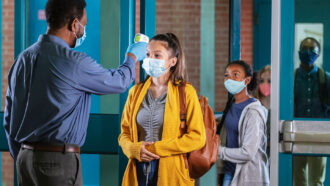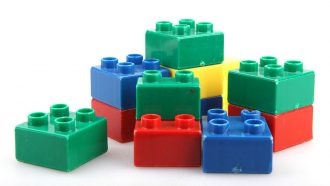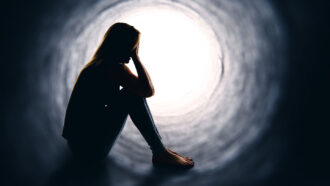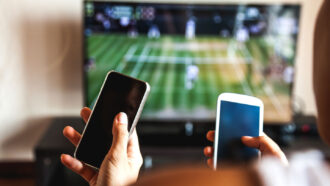Psychology
-
 Health & Medicine
Health & MedicineKids lost more than learning when COVID closed their schools
The first 18 months of the pandemic has already taken a hefty academic and emotional toll on students, new research shows.
-
 Psychology
PsychologyMost people will add something — even when subtracting makes more sense
People default to adding when solving puzzles and problems, even when subtracting works better. That could underlie some modern-day excesses.
By Sujata Gupta -
 Brain
BrainSearch for ‘rewards’ is big driver in remodeling a teen’s brain
Communication ‘highways’ in the brain undergo a major overhaul as children morph into adults. Dopamine plays a big role in this remodeling project.
-
 Psychology
PsychologyToo much sitting could hurt your mental health
As inactivity increases, so does risk of depression and other mental health problems, new studies show. But breaks for even light activity can help.
-
 Health & Medicine
Health & MedicineSix tips to build more movement into your day
Most people don’t move enough. The trick is to do what you can whenever you can, even if it’s just standing up more than once an hour and walking a bit.
-
 Health & Medicine
Health & MedicineScientists Say: Placebo
In clinical trials, scientists often test a drug or procedure against a placebo — a treatment that has no effect — to find out how well their new treatment works.
-
 Psychology
PsychologyBoredom may pose a public health threat in the social distancing era
Boredom contributes to pandemic fatigue, and it may account for why some people don’t follow social distancing rules.
By Sujata Gupta -
 Health & Medicine
Health & MedicineTeen depression linked to how the brain processes rewards
Depression in teens alters their brains’ pathways in ways that may put those kids at risk of lifelong mental-health problems — unless they get help.
-
 Brain
BrainStudy is first to link brainwaves to certain forms of thought
Electrical activity in the brain reveals when we are focused or allowing our minds to wander freely.
-
 Brain
BrainLoneliness makes our brains crave people
An area of the brain that lights up when hungry people see food also revs up when lonely people see social activities.
-
 Psychology
PsychologyCan’t remember? Maybe you multitask too much between screens
Splitting your attention between devices can make it hard to create new memories, even when you’re not multitasking.
-
 Health & Medicine
Health & MedicineSocial distancing for teens shouldn’t mean giving up your social life
During even partial lockdowns, keeping connected with friends makes all the difference. That’s what athletes and other teen groups are finding.